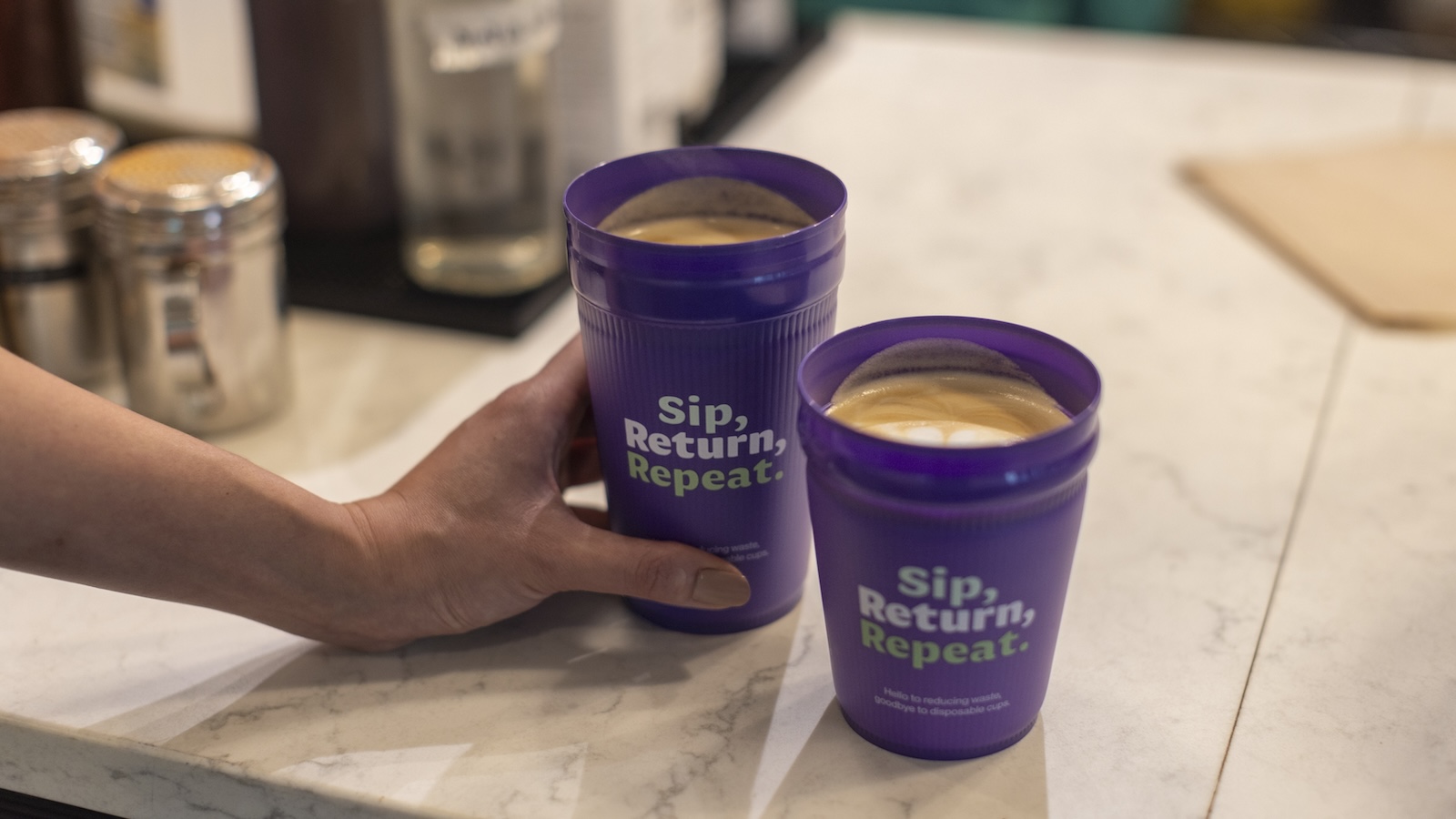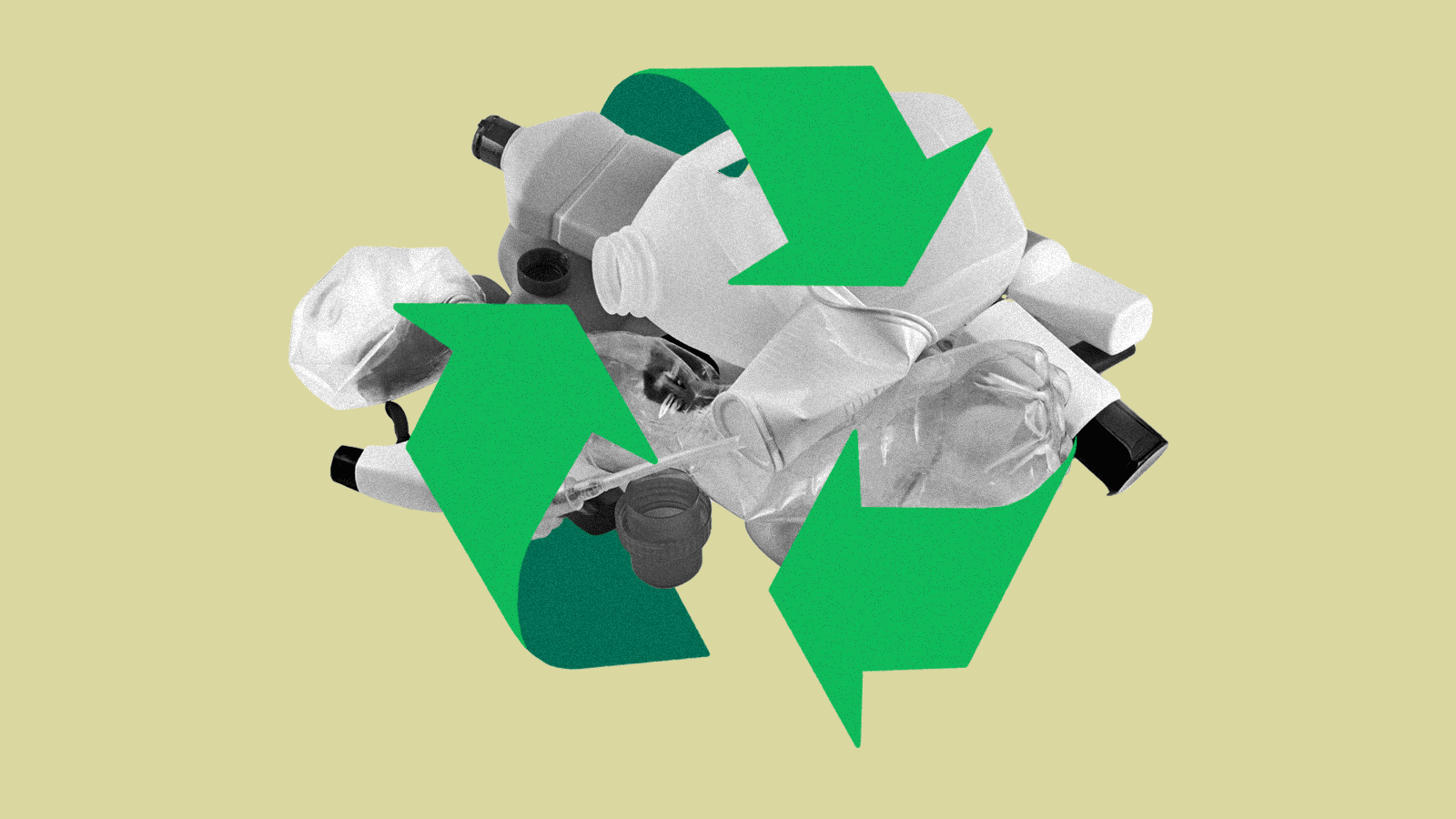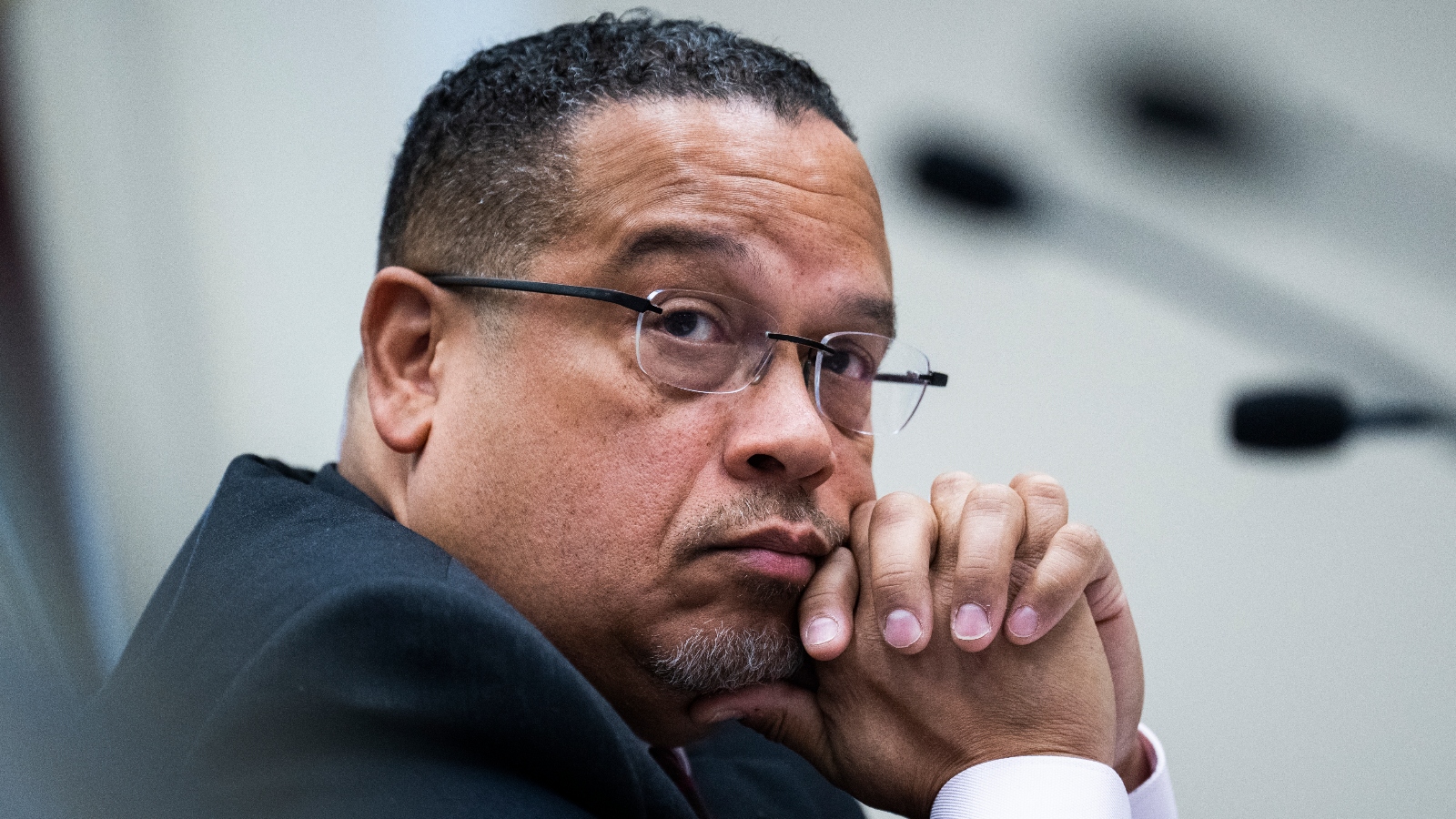Walmart and Reynolds Consumer Products have agreed to stop selling certain plastic bags in Minnesota for two and a half years after the state’s Attorney General Keith Ellison argued in court that the companies falsely marketed them as recyclable.
Reynolds makes the 13- and 30-gallon Hefty-brand blue or clear plastic bags that Ellison challenged in the lawsuit, filed in Ramsey County District Court in June 2023. The lawsuit also included similar claims against 13-, 30- and 33-gallon bags sold under Walmart’s Great Value brand.
When Walmart or Reynolds resume selling the bags after the moratorium, they must be labeled as non-recyclable, according to settlement agreements reached with Walmart and Reynolds on August 1.
The two companies have agreed to pay a total of $216,670, which includes 100 percent of their profits from the sale of the bags, the state’s legal fees and other financial compensation, according to a press release from Ellison’s office.
“Defendants must establish and enforce legal review procedures for marketing claims and provide anti-greenwashing training to their marketing teams at least annually,” the settlement document states.

“Sip, return, repeat”: How this California city is trying to normalize reusable cups
In a written statement, Reynolds said: “We believe these allegations are without merit, but we are pleased to put this matter behind us. We remain committed to our sustainability mission of developing innovative products and solutions that simplify everyday life and protect the environment.”
A Walmart spokeswoman declined to comment on the settlement.
“Minnesota residents have one of the highest recycling rates in America because we love our clean land, clean air and clean water,” Ellison said in the press release.
“I am pleased that Reynolds and Walmart, who have benefited from the good intentions of the citizens of Minnesota, have agreed to stop marketing so-called ‘recycled’ bags to us that cannot be recycled and will distribute the profits they have made on those bags,” he said. “Any other companies thinking about ‘greenwashing’ their products to sell them to the citizens of Minnesota in a deceptive manner should know by now that I will not hesitate to hold them legally accountable.”
According to a plastics litigation observer at New York University Law School, the Minnesota lawsuit is one of nearly four dozen lawsuits filed against the plastics industry since 2015, mostly by citizens or environmental groups.

How can we create a “world without waste”? Here are the ideas of the plastics industry.
But recently, attorneys general in Connecticut, Minnesota and New York have upped the ante with their own plastic lawsuits, bringing with them considerable legal clout.
The litigation comes against a backdrop of rapidly growing scientific evidence detailing how increasing plastic production and the resulting plastic waste are harming the planet and threatening public health.
Plastics are made from thousands of chemicals and are not designed to be recycled. The recycling rate in the United States is estimated to be less than 10 percent. Bags are among the more difficult items to recycle, and their filmy and thin nature can clog recycling facilities.
Ellison had argued that Walmart’s and Reynolds’ marketing violated state laws prohibiting false advertising, deceptive environmental marketing and consumer fraud. The settlement included a clause that it should not be considered an admission of guilt or admission of guilt by the defendants.
The lawsuit included promotional photos that Ellison said were intended to falsely convince Minnesota residents that the bags were for recycling and could be recycled. Some of them were blue and associated with specific recycling programs and included a statement that they were “intended for use in municipal recycling programs where appropriate,” according to the lawsuit.
Certain clear bags, the lawsuit said, were labeled as “transparent for quick curbside sorting and identification.” Reynolds also placed the word “RECYCLING” in capital letters prominently on the front label of Hefty “Recycling” trash bags, while the packaging featured a picture of a clear bag filled with plastic and those words, the lawsuit said, “HEFTY RECYCLING BAGS ARE PERFECT FOR ALL YOUR RECYCLING NEEDS.”

